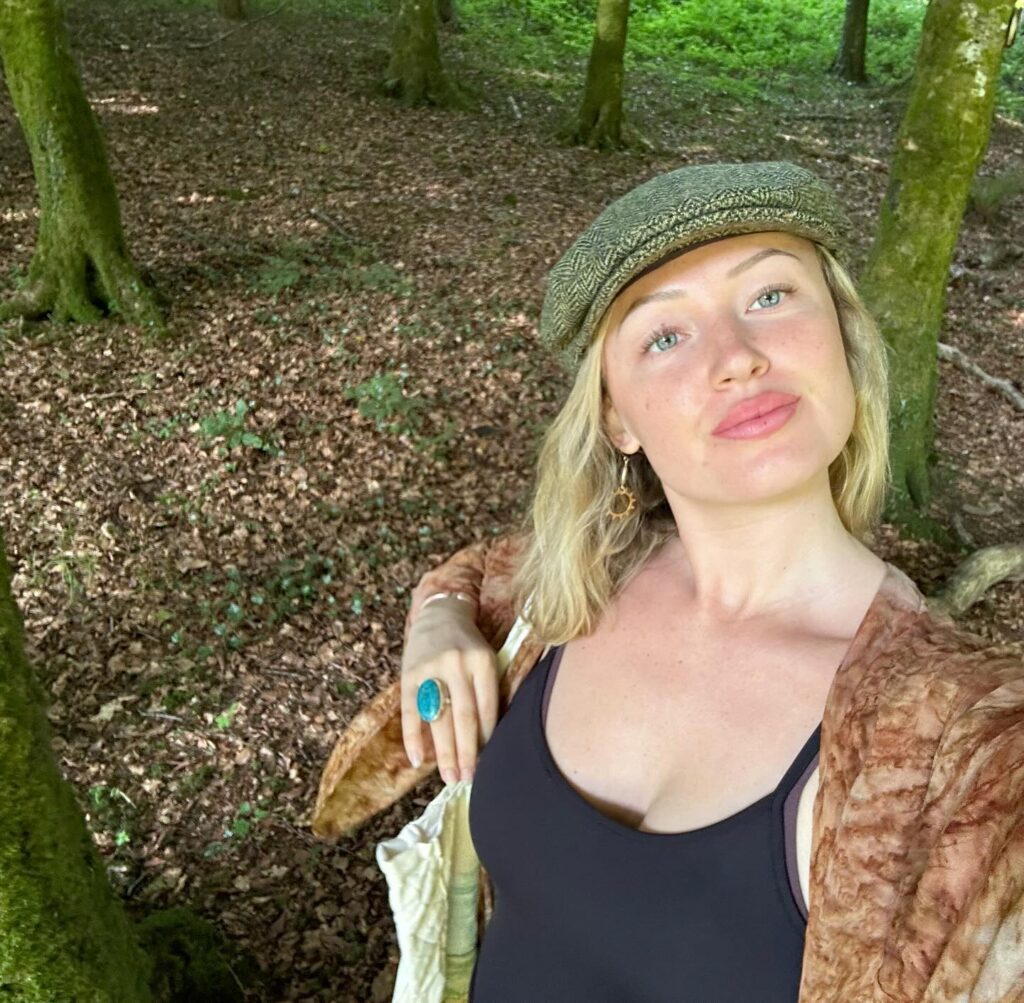Menopause

Menopause
Menopause brings about a multitude of physical and emotional changes, presenting unique challenges for women. While conventional medicine offers solutions, many women seek natural and holistic approaches to manage menopause symptoms and navigate this life transition in a manner that aligns with their wellness philosophy. Holistic menopause treatments encompass diverse practices that focus on achieving balance in mind, body, and spirit for optimal well-being.
What are Holistic Menopause Treatments?
Holistic menopause treatments encompass a wide range of natural and complementary approaches that prioritize the whole person rather than solely focusing on isolated symptoms. These treatments may include:
- Dietary Changes: Prioritizing a whole-foods, plant-based diet abundant in fruits, vegetables, and healthy fats can support overall health and ease menopause symptoms.
- Herbal Supplements: Various herbs, such as black cohosh and red clover, possess properties that might mitigate hot flashes, night sweats, and mood changes.
- Mind-Body Practices: Techniques like yoga, meditation, and deep breathing foster relaxation, reduce stress hormones, and improve sleep quality.
- Lifestyle Modifications: Maintaining a healthy weight, engaging in regular exercise, and getting sufficient sleep are vital for managing menopause symptoms.
- Traditional Therapies: Practices like acupuncture and naturopathy offer individualized approaches to address hormonal imbalances and alleviate menopause discomfort.
How Can Holistic Menopause Treatments Help You?
Holistic menopause treatments offer a range of potential benefits, making them an integral part of a holistic wellness approach. They can help you by:
- Managing Symptoms: Natural remedies, lifestyle changes, and mind-body techniques can effectively address the common discomforts of menopause, like hot flashes, insomnia, and mood changes.
- Promoting Overall Health: Holistic approaches emphasize a well-rounded strategy, improving diet, stress levels, and sleep patterns, which have far-reaching benefits for long-term health.
- Offering Empowerment: Participating in holistic menopause treatment empowers women to take an active role in their health and well-being during this transformative period.
What are Holistic Menopause Treatments Good For?
Holistic menopause treatments hold value for various aspects of menopause management and overall well-being:
- Reducing Symptom Severity: Natural remedies and lifestyle changes effectively reduce the frequency and intensity of typical menopause symptoms.
- Addressing Root Causes: Holistic approaches aim to restore hormonal balance and address underlying factors contributing to menopause discomforts.
- Complementing Conventional Care: Holistic menopause treatments often complement traditional medical treatment plans, offering additional support and symptom management.
- Cultivating Mindfulness: Mind-body practices enhance self-awareness and foster a sense of calmness and emotional resilience during menopause transitions.
Benefits of Holistic Menopause Treatments
Embracing holistic menopause treatments offers several advantages for women seeking natural and empowering wellness approaches:
- Fewer Side Effects: Natural remedies tend to have a lower risk of side effects compared to some conventional menopause medications.
- Personalized Approach: Holistic treatments address your unique needs, symptoms, and health history, providing tailored care.
- Enhanced Well-being: Holistic practices promote overall physical, emotional, and spiritual well-being beyond just targeting menopause symptoms.
- Sustainable Self-Care: Holistic treatments cultivate healthy habits, paving the way for lasting wellness throughout and beyond menopause.
What to Expect from Holistic Menopause Treatments with a Practitioner
Consultations with practitioners specializing in holistic menopause treatments offer individualized guidance and support:
- Comprehensive Assessment: Your practitioner thoroughly assesses your symptoms, health history, and lifestyle factors to understand your specific needs.
- Personalized Recommendations: They provide a tailored plan that might include natural supplements, dietary guidance, exercise recommendations, and mind-body techniques.
- Collaboration: Working with your practitioner is a collaborative effort, allowing for adjustments and modifications based on your progress.
- Ongoing Support: Practitioners offer continued support and monitoring as you navigate your menopause journey.
Similar Modalities to Holistic Menopause Treatments
For broader support for women’s health and hormonal balance, these modalities complement holistic menopause treatments:
- Naturopathy: Naturopathic practitioners utilize natural remedies, lifestyle changes, and stress management techniques to support overall health and well-being.
- Functional Medicine: This approach identifies root causes of imbalances impacting health, providing a personalized treatment plan to restore balance.
- Ayurveda: Using ancient Indian medicine’s principles, Ayurvedic practices promote overall wellness with its holistic approach that focuses on body, mind, and spirit.
Final Thoughts
Holistic menopause treatments empower women to navigate this transitional period with natural and proactive approaches that promote well-being. When incorporated into a comprehensive wellness plan, they can facilitate a smoother menopause experience, both physically and emotionally. It is essential to consult your healthcare provider before starting any new treatments or supplements to ensure they are safe and appropriate for you.
Scientific References
While more research is needed to fully understand the efficacy of all holistic menopause treatments, here are some studies supporting their potential benefits:
- Franco, O. H., Chowdhury, R., Troup, J., Voortman, T., Kunutsor, S., Kavousi, M., & Muka, T. (2016). Use of plant-based therapies and menopausal symptoms: A systematic review and meta-analysis. Menopause, 23(11), 1269–1281.
- Newton, K. M., Reed, S. D., LaCroix, A. Z., Grothaus, L. C., Ehrlich, K., Guiltinan, J., & Ensrud, K. E. (2006). Treatment of vasomotor symptoms of menopause with black cohosh, multibotanicals, soy, hormone therapy, or placebo: a randomized trial. Annals of Internal Medicine, 145(12), 869-879.
- Chhatre, S., Nesari, T., Somani, G., Kanchan, D., & Sathaye, S. (2018). Phytoestrogenic isoflavones and their efficacy in managing menopausal symptoms: A review. Journal of Midlife Health, 9(2), 60–67.
Recommended Reading
For further insights into holistic menopause management, consider these informative books:
- *The Wisdom of Menopause: Creating Physical and Emotional Health During the Change by Christiane Northrup (provides a comprehensive guide to menopause with a focus on natural treatments and self-empowerment).
- Natural Menopause: The Complete Guide to a Woman’s Most Misunderstood Passage by Susan Love (offers practical and evidence-based information on menopause symptoms and management strategies).
- What Your Doctor May Not Tell You About Menopause by John R. Lee (focuses on natural hormone treatments and provides in-depth explanations of menopause from a holistic perspective).
FAQ: Menopause
Are holistic menopause treatments safe?
While many natural menopause remedies are generally considered safe, it’s essential to consult your healthcare provider before starting any treatments. Discuss potential interactions with your current medications and any underlying health conditions.
Can holistic menopause treatments replace hormone replacement therapy (HRT)?
For some women, holistic approaches offer effective alternatives to HRT. However, the decision depends on your individual needs, symptom severity, and your doctor’s recommendations.
How long does it take for holistic menopause treatments to work?
Results vary with different treatments. Some women experience relief within weeks, while others may require more time. Patience and consistency are essential for achieving optimal benefits with holistic approaches.
Do I need to see a practitioner for holistic menopause treatments?
While self-care plays a vital role, consulting a practitioner specializing in holistic menopause management can ensure a personalized treatment plan and provide valuable guidance throughout your journey.
How do I find a qualified holistic practitioner?
Seek referrals from trusted sources, search online directories for naturopathic doctors, functional medicine practitioners, or health professionals specializing in women’s health and menopause.
Related Practitioners
Kim McIntire
The Neurodivergent Healer & Hypnotist
- Carson City, Nevada, United States
- +1 (775) 240-6381
My name is Kim McIntire, and my transformative journey in holistic wellness commenced 22 years ago during my time at… Read More
Ella Ringrose
Awaken Your Inner Power, Align with Your Purpose
- Toronto, Golden Horseshoe, Ontario, Canada
- +1 (555) 555-0000
Ella Ringrose is a spiritual guide dedicated to empowering individuals on their spiritual journeys. Through her YouTube channel, she shares… Read More
Ali Campbell
Neuro Linguistic Programming Expert
- Los Angeles, Los Angeles County, California, United States
- +44 (2) 555-5555
As information is rapidly changing, we encourage you to continue to stay informed. Please visit our Coronavirus Resource Center, Healthgrades… Read More























